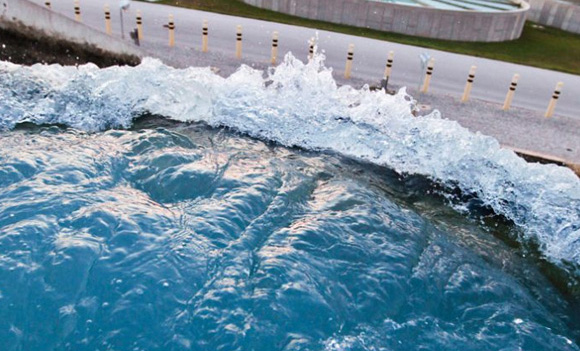
In an era marked by increasing environmental awareness and the pressing need for resource management, the significance of efficient water systems cannot be overstated. Water is not only essential for sustaining life but also for driving economies and supporting ecosystems. Effective water system services play a pivotal role in ensuring the responsible use, distribution, and management of this invaluable resource.
Send Enquiry
Understanding Water System Services
Water system services encompass a range of critical activities aimed at facilitating the efficient movement, treatment, and distribution of water. These services are designed to meet diverse needs, including domestic, industrial, agricultural, and environmental requirements. The key components of water system services include water supply, water treatment, distribution networks, wastewater management, and sustainable practices. By integrating these components, communities and industries can ensure a continuous and reliable water supply while minimizing the environmental impact.
1. Water Supply
A robust water supply system forms the foundation of any water management strategy. This involves sourcing water from natural sources such as rivers, lakes, and groundwater reserves. It also includes the extraction, storage, and transportation of water to treatment facilities. Maintaining the quality and quantity of available water resources is crucial to meet the growing demand and safeguard against water scarcity.
2. Water Treatment
Raw water sourced from nature often contains impurities and contaminants that can be harmful to human health and the environment. Water treatment processes involve the removal of pollutants, microorganisms, and unwanted substances. Common treatment methods include filtration, disinfection, sedimentation, and chemical treatment. Proper water treatment ensures that the water supplied to consumers meets safety standards and is fit for consumption.
3. Distribution Networks
Water distribution networks are intricate systems of pipes, pumps, valves, and storage tanks that transport treated water from treatment plants to consumers. Efficient distribution networks ensure that water reaches its intended destinations with minimal loss due to leaks, breaks, or inefficiencies. Modern technology, such as smart sensors and monitoring systems, plays a vital role in optimizing these networks for reduced wastage and enhanced reliability.
4. Wastewater Management
After water has been used for various purposes, it becomes wastewater. Wastewater management involves collecting, treating, and disposing of this used water in an environmentally responsible manner. Proper wastewater management prevents pollution of natural water bodies and promotes the recycling of water for secondary uses like irrigation and industrial processes.
5. Sustainable Practices
The concept of sustainability is at the forefront of contemporary water system services. To ensure a reliable water supply for future generations, sustainable practices are being adopted. These practices include efficient water use through conservation campaigns, the implementation of water-efficient technologies, rainwater harvesting, and the restoration of watersheds and wetlands.
Challenges in Water System Services
Despite the progress made in water system services, several challenges persist that hinder the achievement of sustainable and efficient water management:
1. Water Scarcity: Many regions around the world face water scarcity due to over-extraction, pollution, and climate change impacts. Water scarcity underscores the need for effective conservation and management strategies.
2. Aging Infrastructure: The infrastructure of many water distribution systems is aging and in need of repair or replacement. This poses challenges in maintaining consistent water supply and quality.
3. Pollution: Industrial and agricultural runoff, as well as inadequate wastewater treatment, contribute to water pollution. Contaminated water sources jeopardize human health and ecosystem vitality.
4. Climate Change: Altered precipitation patterns and rising temperatures affect the availability and distribution of water resources. Adapting to these changes requires flexible and resilient water management strategies.
5. Population Growth: Rapid population growth places increased pressure on water systems to meet higher demands. Balancing urbanization and water supply is a critical consideration.
Water system services are at the heart of sustaining life, supporting economies, and preserving ecosystems. By understanding the components of water supply, treatment, distribution, and wastewater management, societies can address the challenges posed by water scarcity, pollution, and aging infrastructure. Through the adoption of sustainable practices, advanced technologies, and informed policies, we move closer to a future where water is efficiently managed, conserved, and made available for generations to come. Embracing the responsibility of water stewardship is not just a choice but a necessity for the well-being of our planet and all its inhabitants.